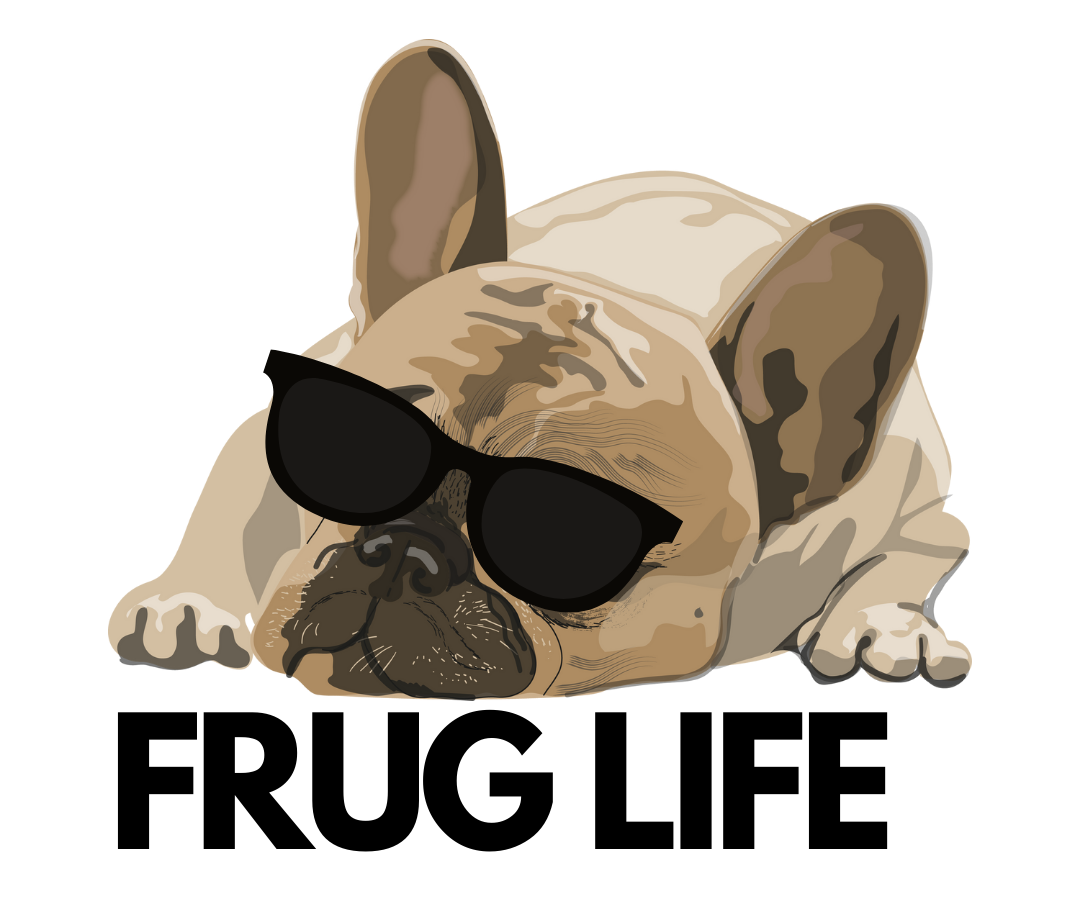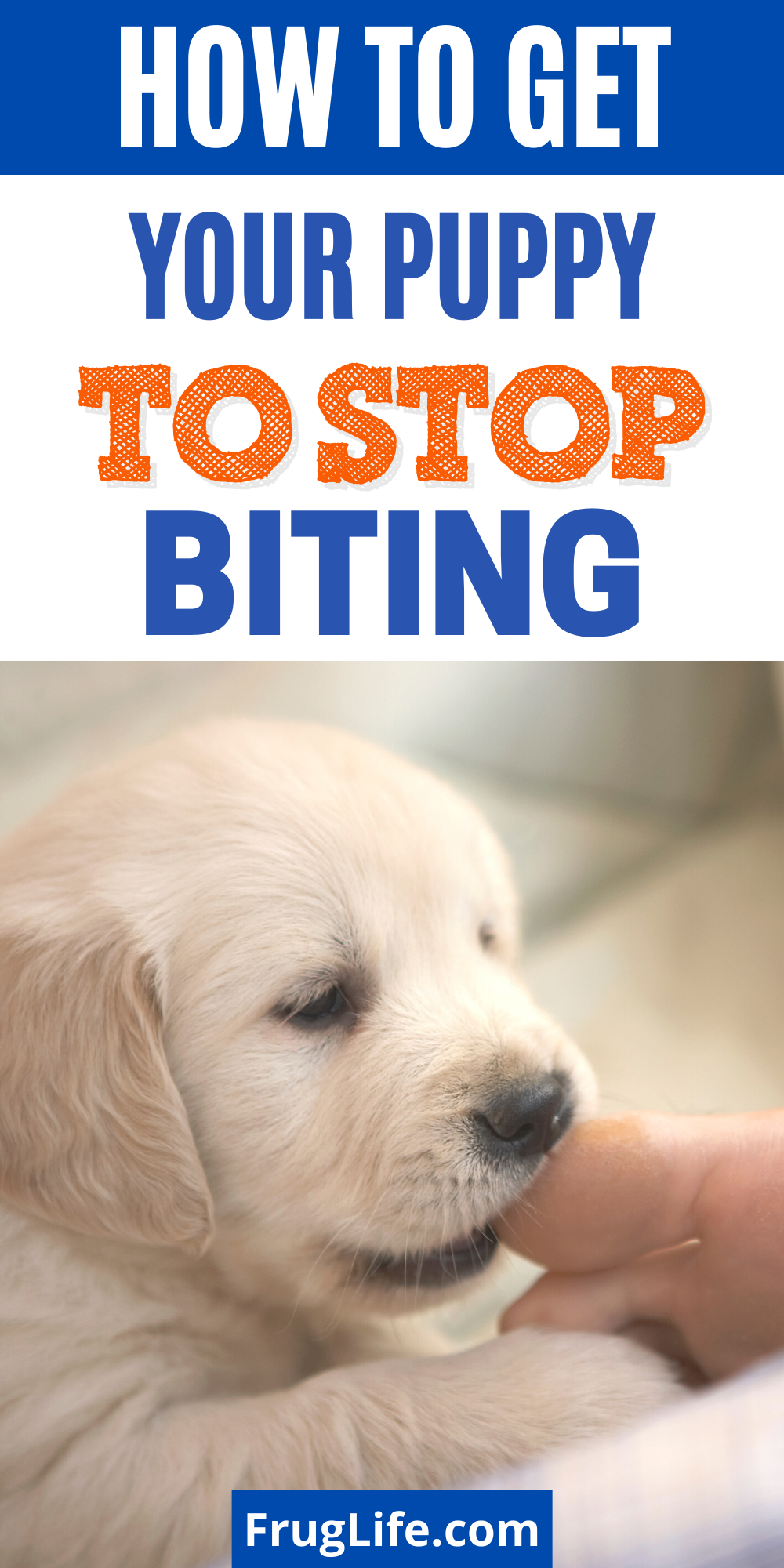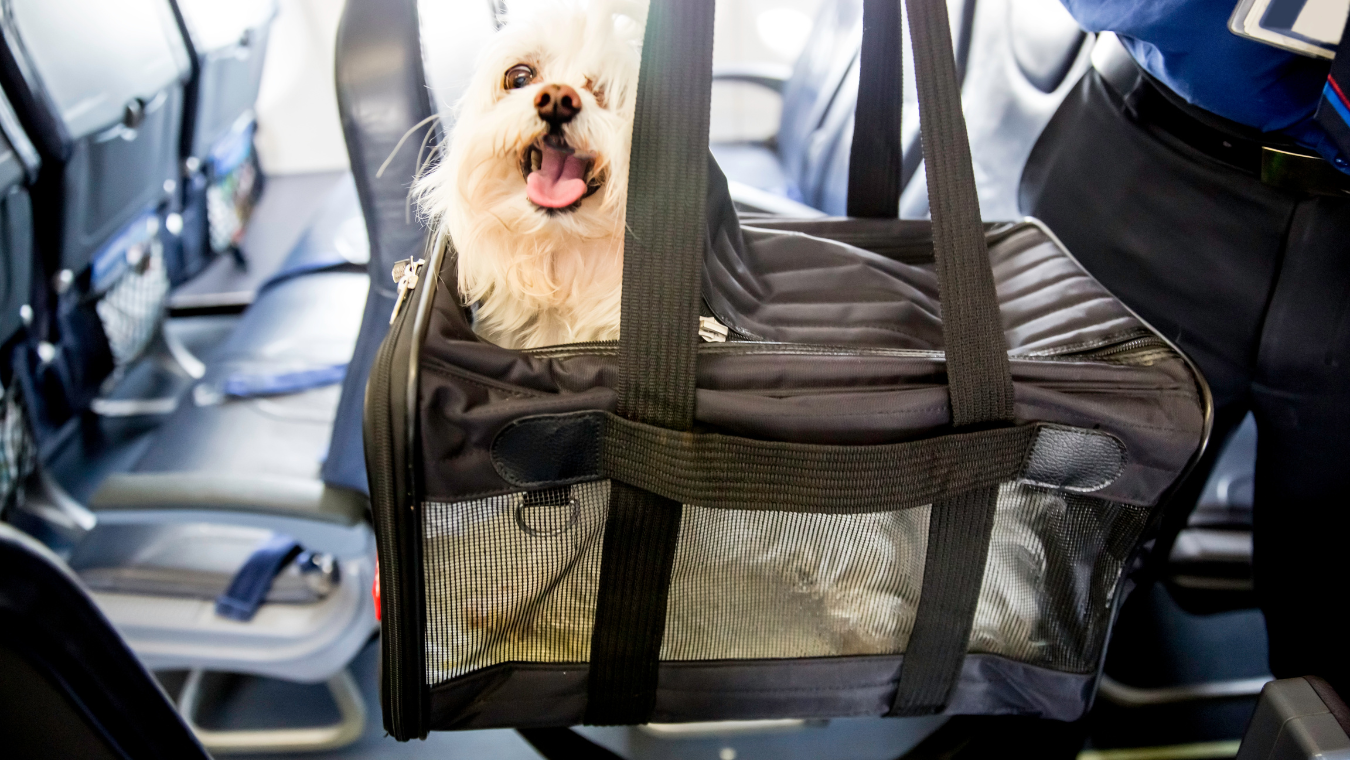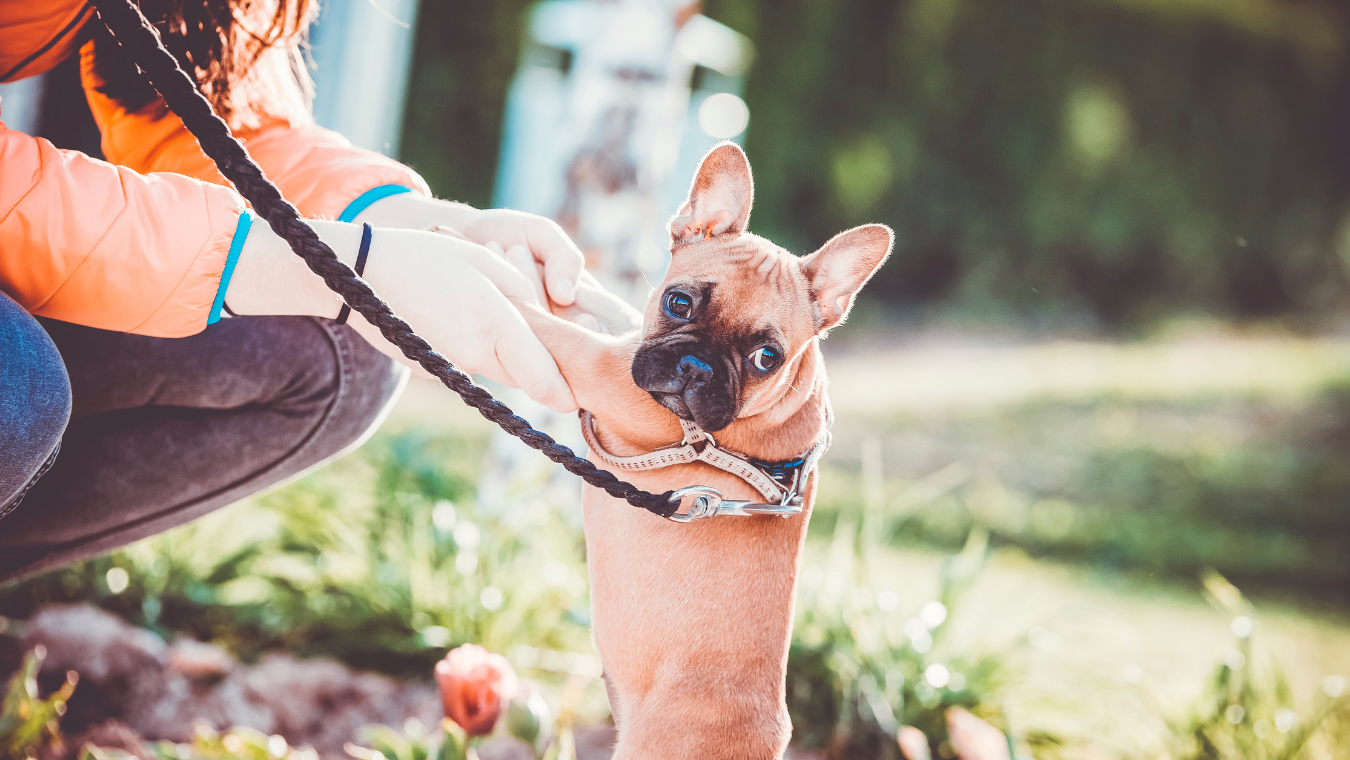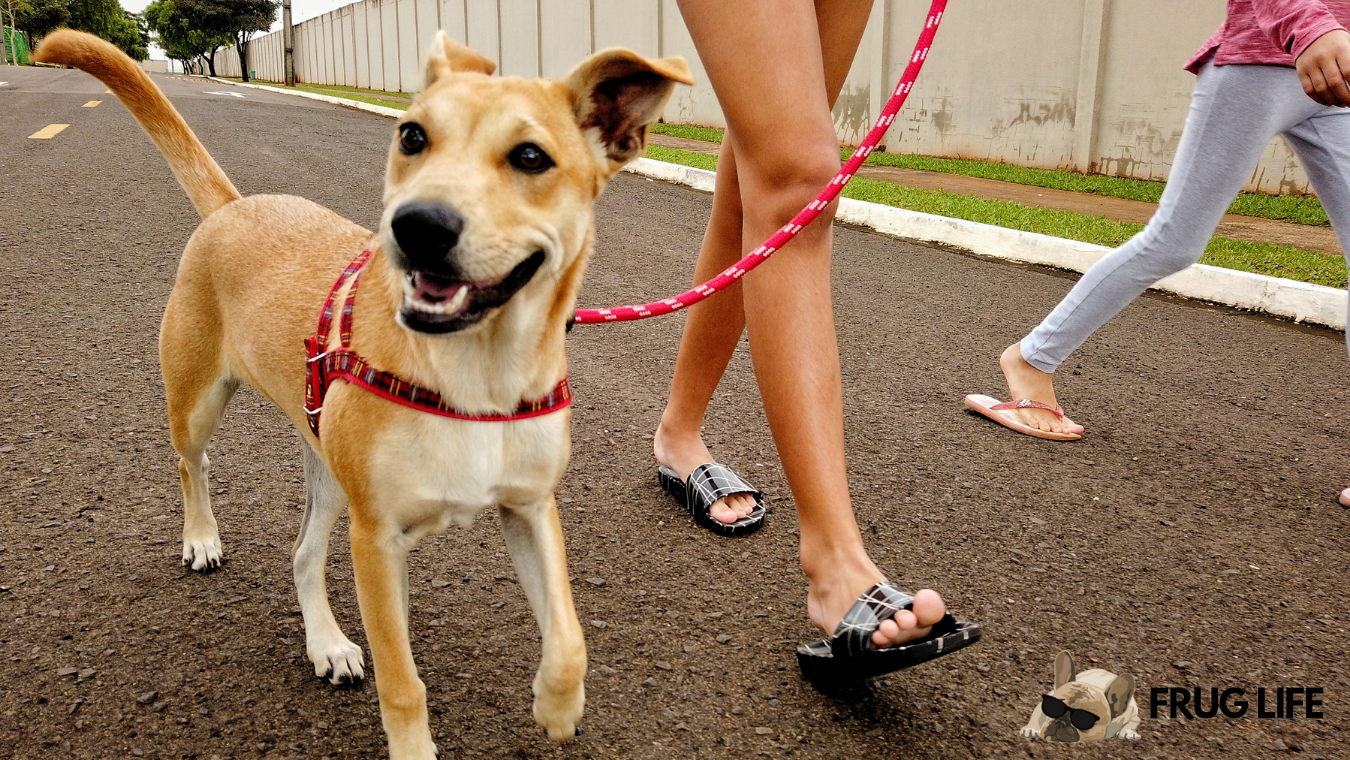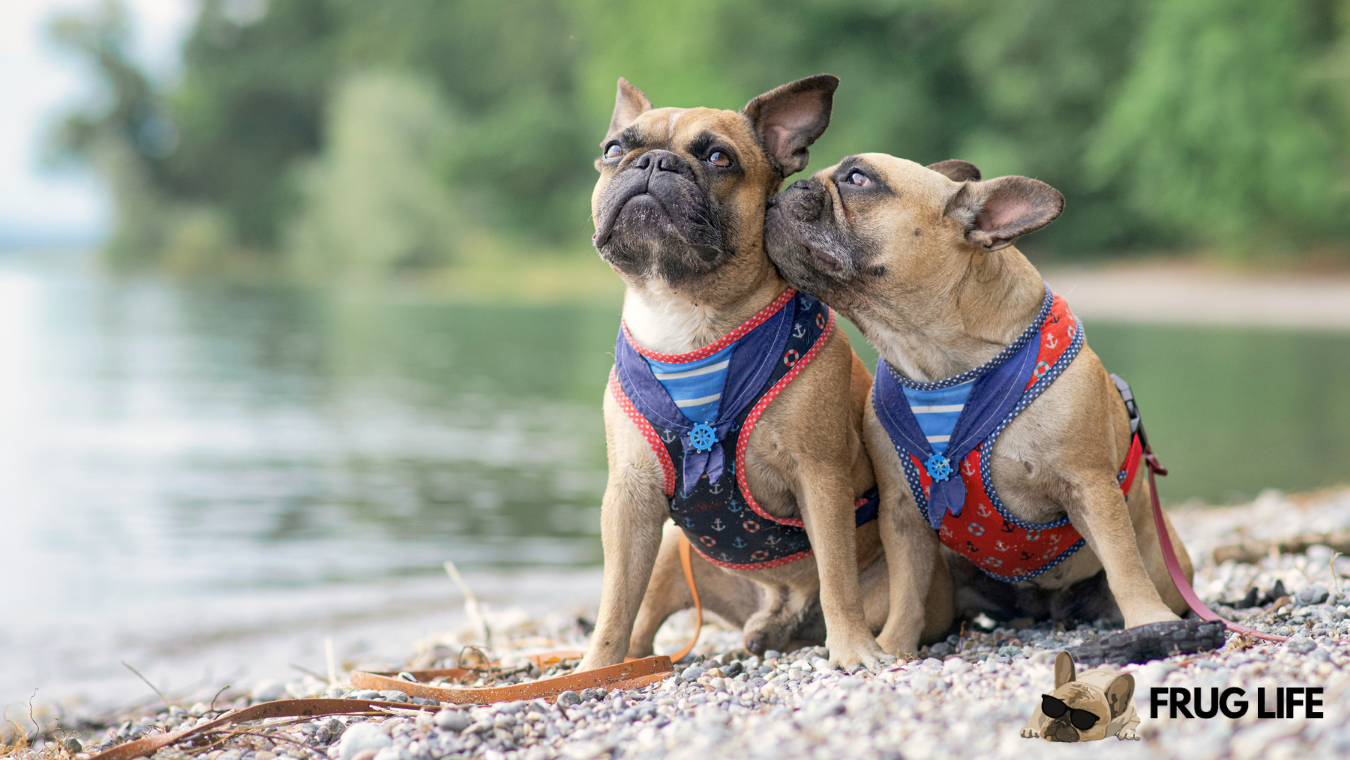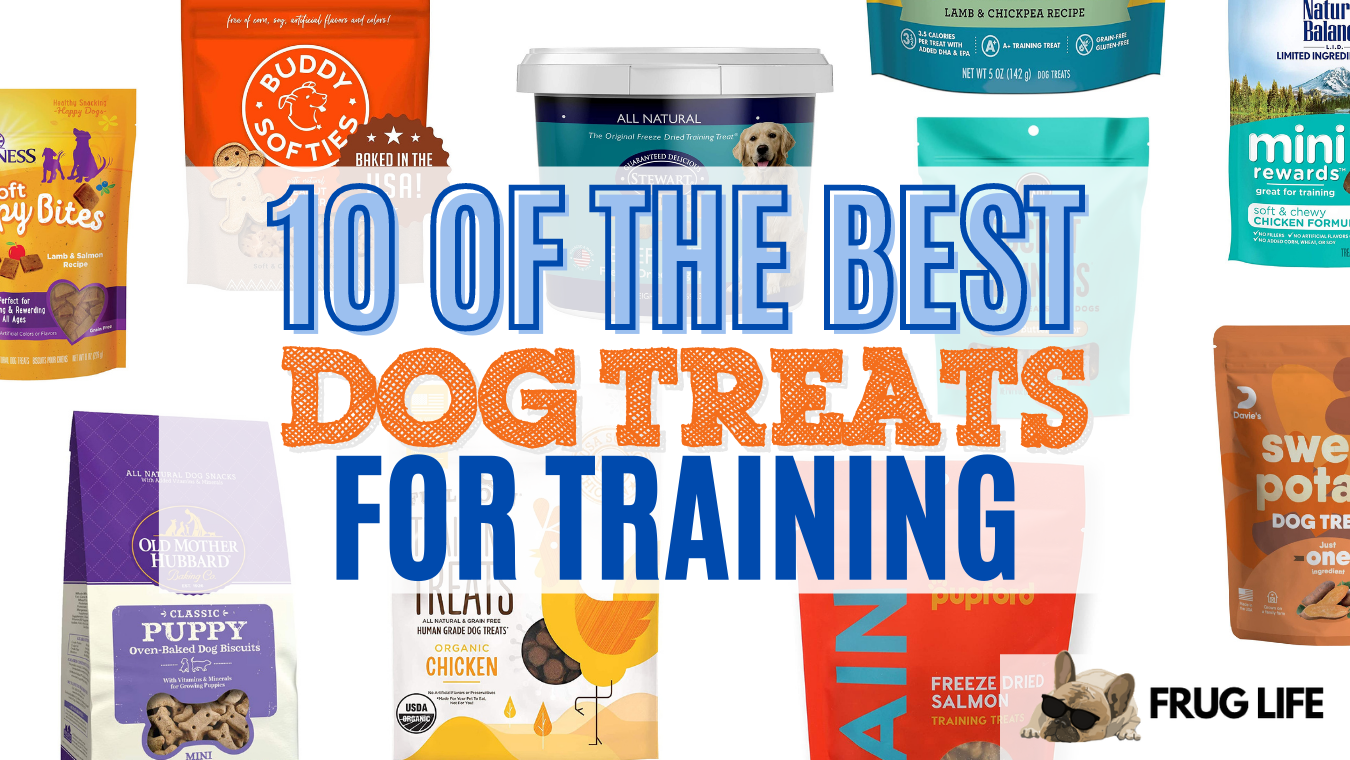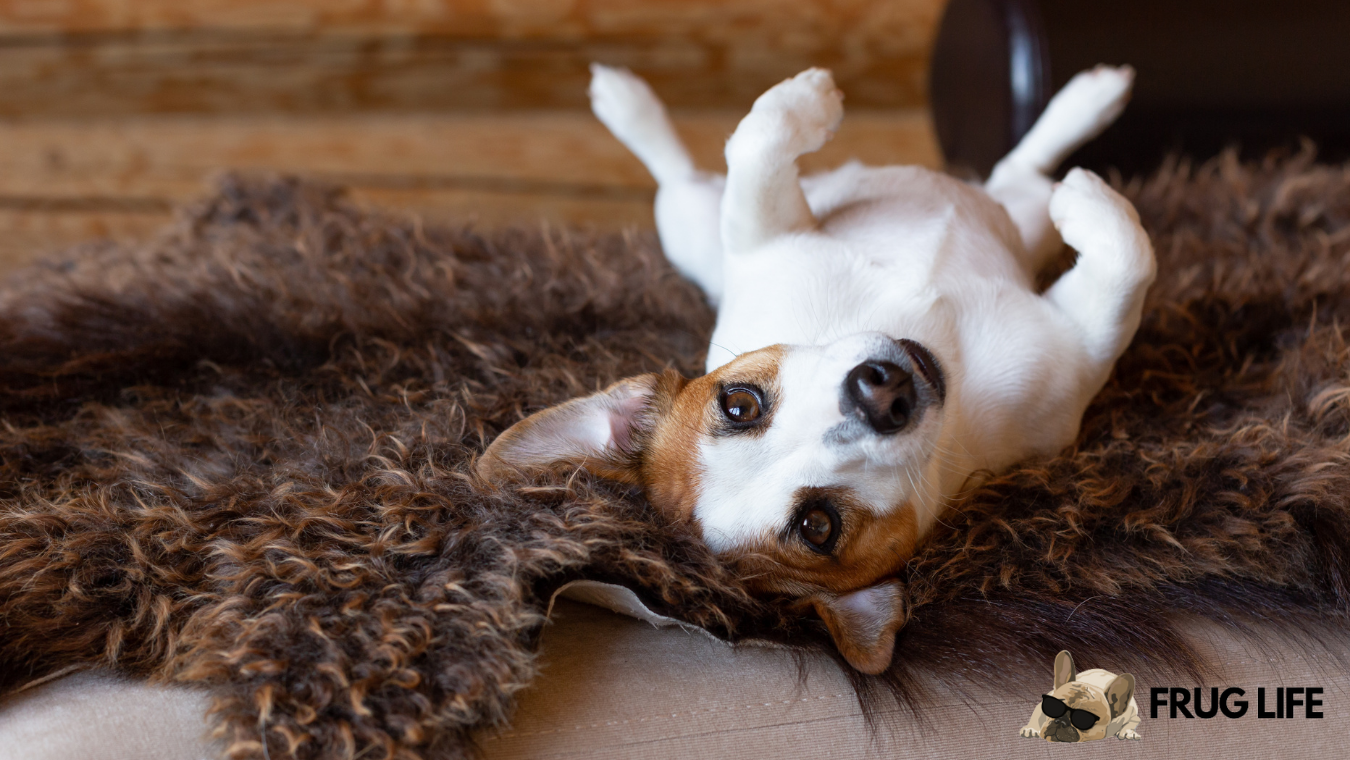How to Get Your Puppy to Stop Biting
Are you wondering how to get your puppy to stop biting? These training tips will have your pup chewing on toys and treats instead of your hands in no time.
“My puppy won’t stop biting me and I’ve tried everything.” “When will my puppy stop nipping at me?” “Dog treats for teething.”
Does your search history look similar?
You’re not alone.
It can be defeating when we’re faced with a problem that doesn’t seem to have a viable solution.
Maybe you’ve tried every trick already, and nothing has worked.
The first thing to know is that this issue is temporary.
It’s true!
Unless your puppy is showing signs of aggression issues, the biting at the hands alone is simply an annoyance at best in most cases.
Many new puppy owners worry about the nipping leading to actual biting as their dog gets older, but not to worry!
It’s typically nothing more than teething relief and your puppy playing with you.
Even if you feel as though you’ve tried every trick in the book, read on for my recommendations on the best toys, treats, and methods that worked for our puppy.
You might just find the perfect combination to help your puppy learn not to nip and play so rough.
First, let’s address some of the most commonly asked questions…
When Do Puppies Stop Biting?
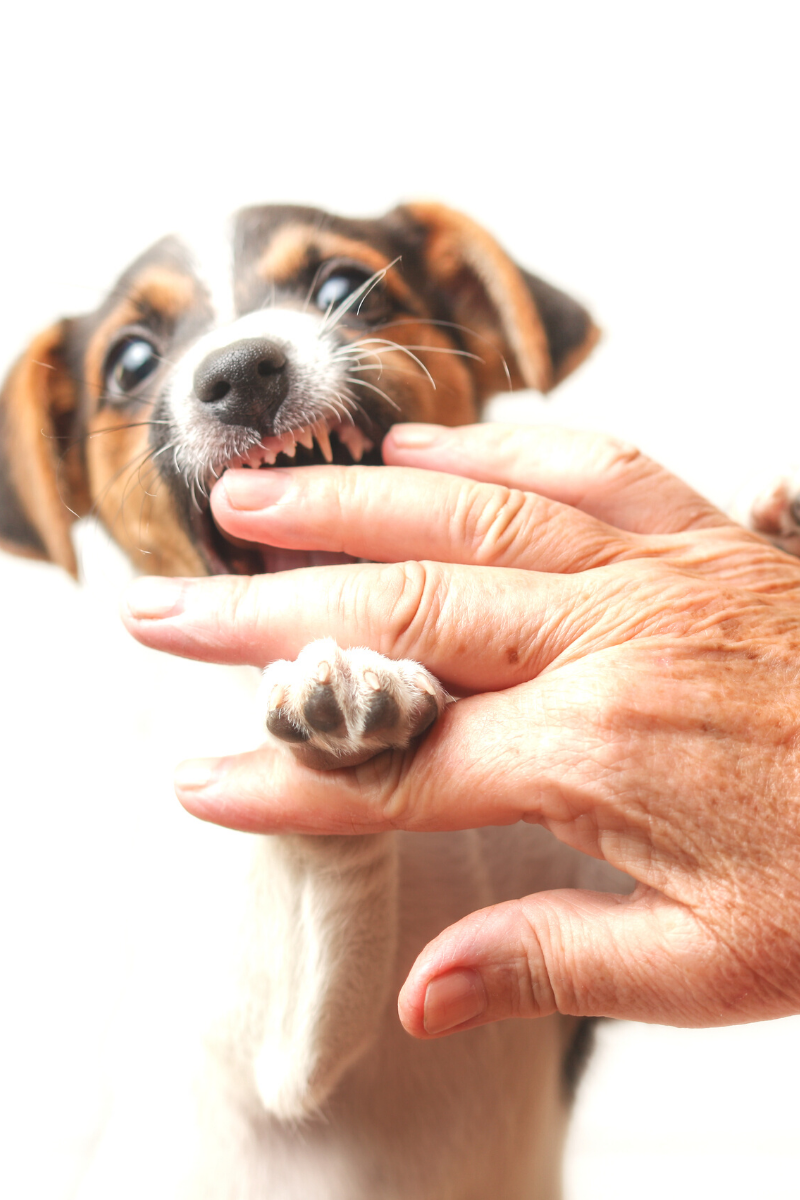

Puppies usually grow out of the biting and mouthing phase by 3 to 5 months of age.
Is It Normal for a Puppy to be Constantly Biting?
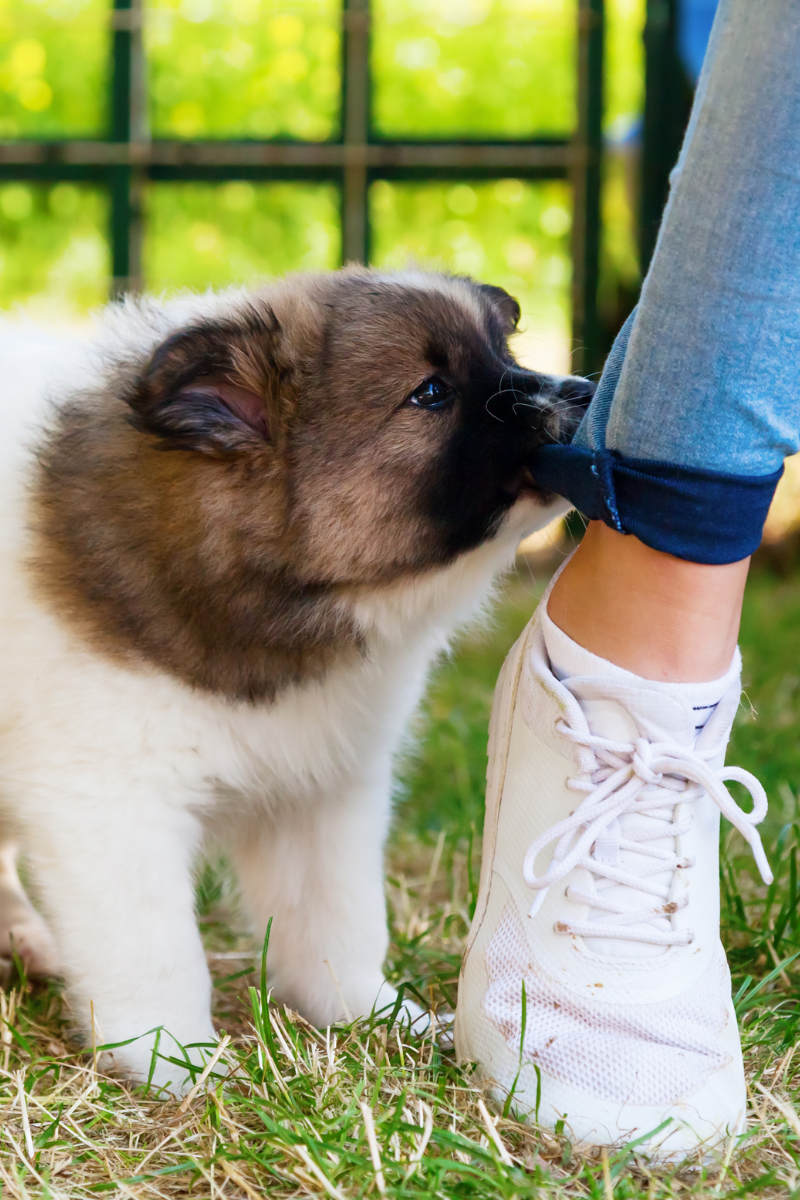

Yes, it’s normal, especially when they’re still very young.
It’s a normal part of their development, similar to a toddler that tries to put everything in their mouth.
Your puppy is likely learning how to interact and play with you, as well as relieving some of the pain from teething.
What Are Signs of Aggression in Puppies?
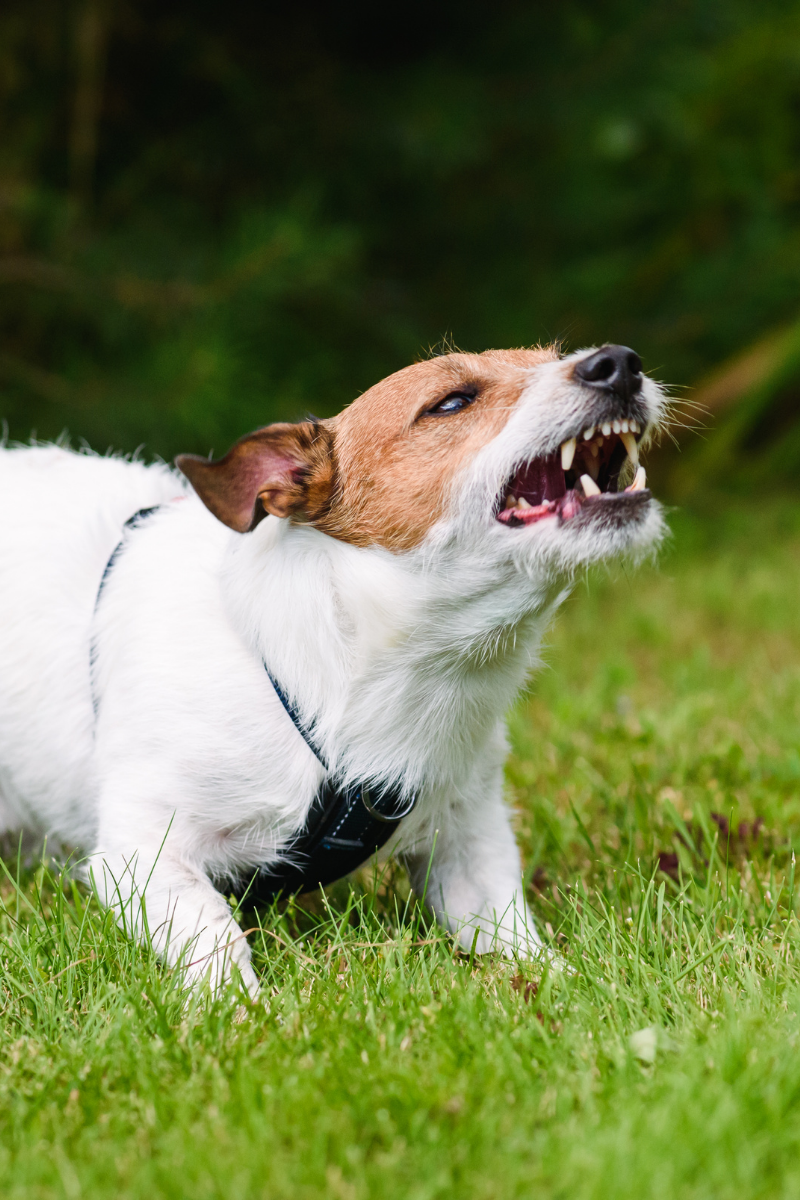

While playfully biting may not be a sign of aggression, it’s still important to know which behaviors are a sign of possible aggression.
Constant biting and nipping, along with some of these behaviors can indicate a bigger issue.
- Growling
- Snarling
- Snapping
- Lunging
- Aggressive barking
- Possessiveness
- Dominant body language
- Mounting
- Lip curling
How to Get Your Puppy to Stop Biting the Leash
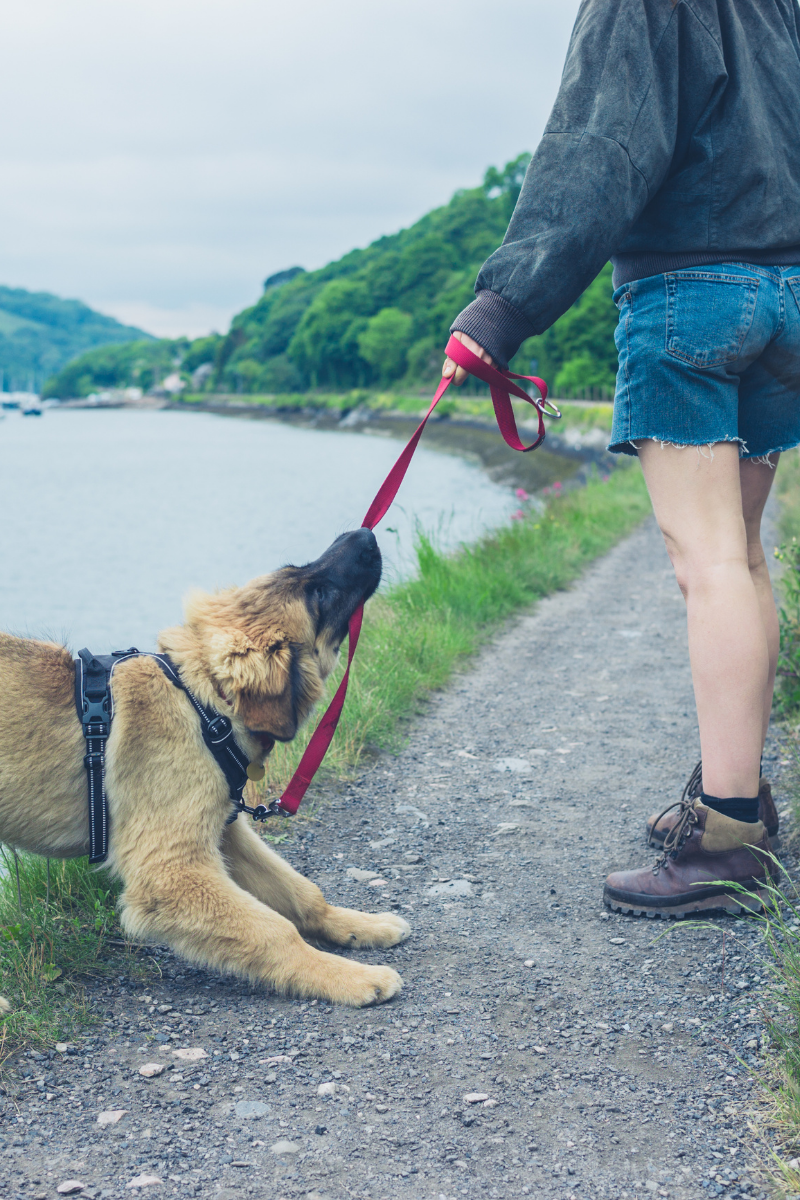

If your puppy is constantly biting the leash, it could be playful, a power struggle, or simply bad leash etiquette. Take a look at our tips for leash training a puppy for more information. The techniques in this article are perfect for any issues that arise while leash training, including biting.
How to Get Your Puppy to Stop Biting Your Other Dog
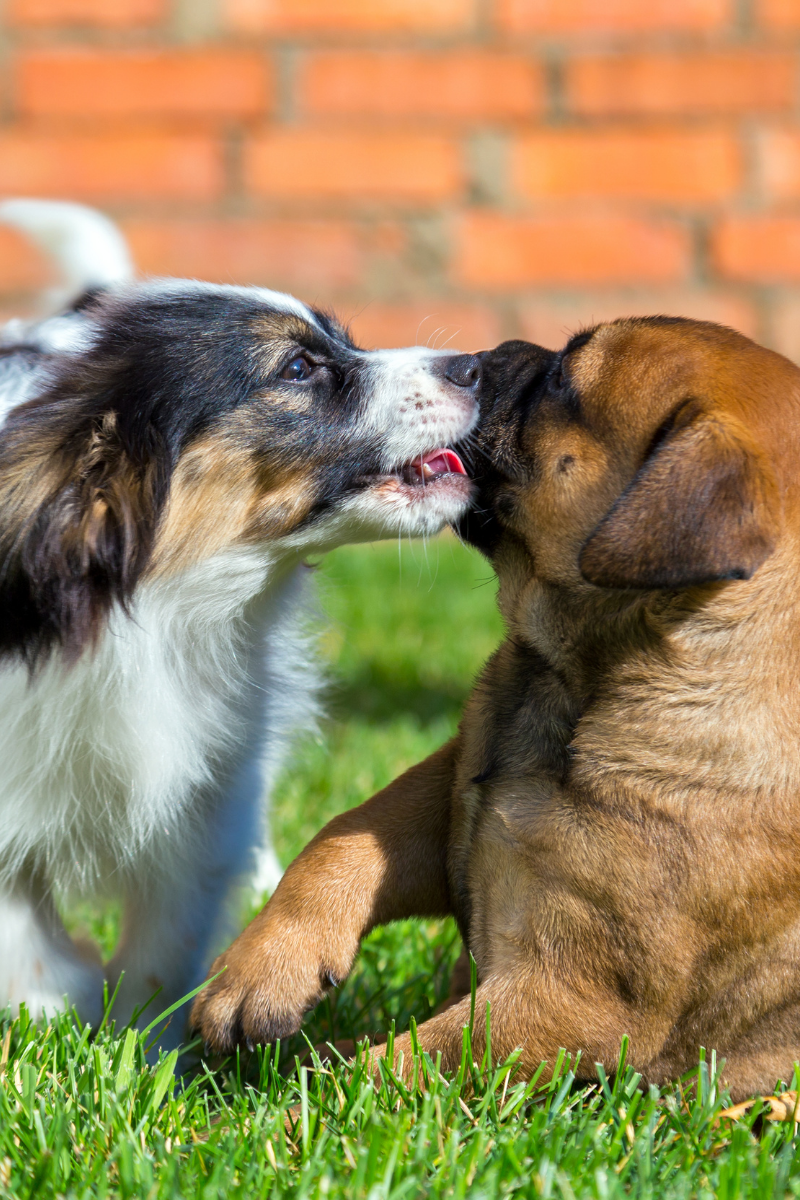

If you have another older dog in the house with your new puppy, you may have noticed that the puppy doesn’t know when enough is enough.
They’re always ready for playtime!
Your older dog, however, may not share that same sentiment.
To get your puppy to stop biting your other dog, the steps will be similar to those used below.
It may even be easier for you, since theoretically, the older dog may let the puppy know when they’ve taken things too far. If you’re worried about aggression or potential fights, seek the help of a professional.
If the dynamic is free of growling, and the older dog yelps when they play gets too rough, it may actually aid in the training.
If you feel you must intervene, the steps below, along with separation when necessary should help while your puppy is still going through their biting phase.
How To Get Your Puppy To Stop Biting
*This post contains affiliate links, however, all opinions are our own, as always.
Use Redirection
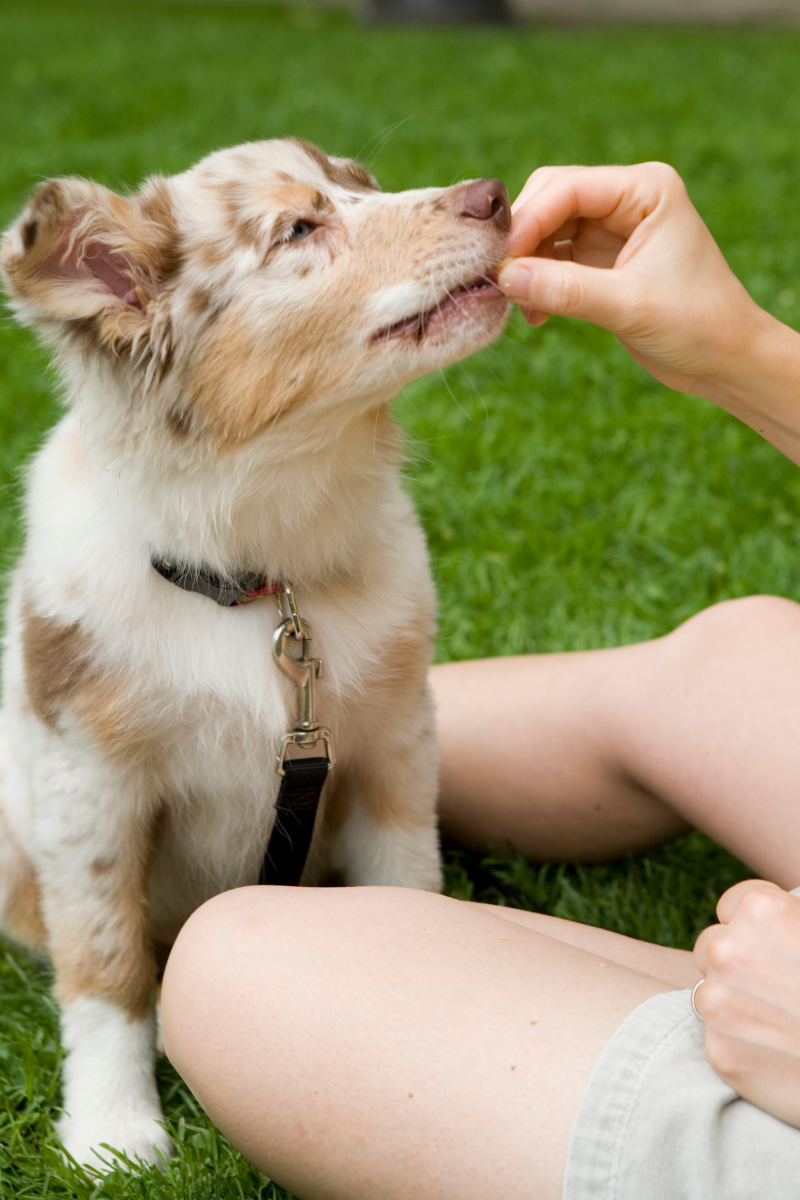

When your puppy is consistently biting or mouthing your hand, and you don’t want to play anymore, try redirecting them to a chew toy.
Remember not to use negative reinforcement by thumping or hitting your puppy’s nose.
Simply give them other options.
This simple act shows them that it’s no longer okay to chew on your hand, but they are more than welcome to chew on a toy.
Does this always work? Absolutely not. It takes time, and redirection in general usually is a tactic to help the owner out as they patiently wait for their puppy to grow out of the teething phase. It also works wonders if your puppy gets excited at the reactions they get out of you.
Provide Plenty of Toys with Different Textures
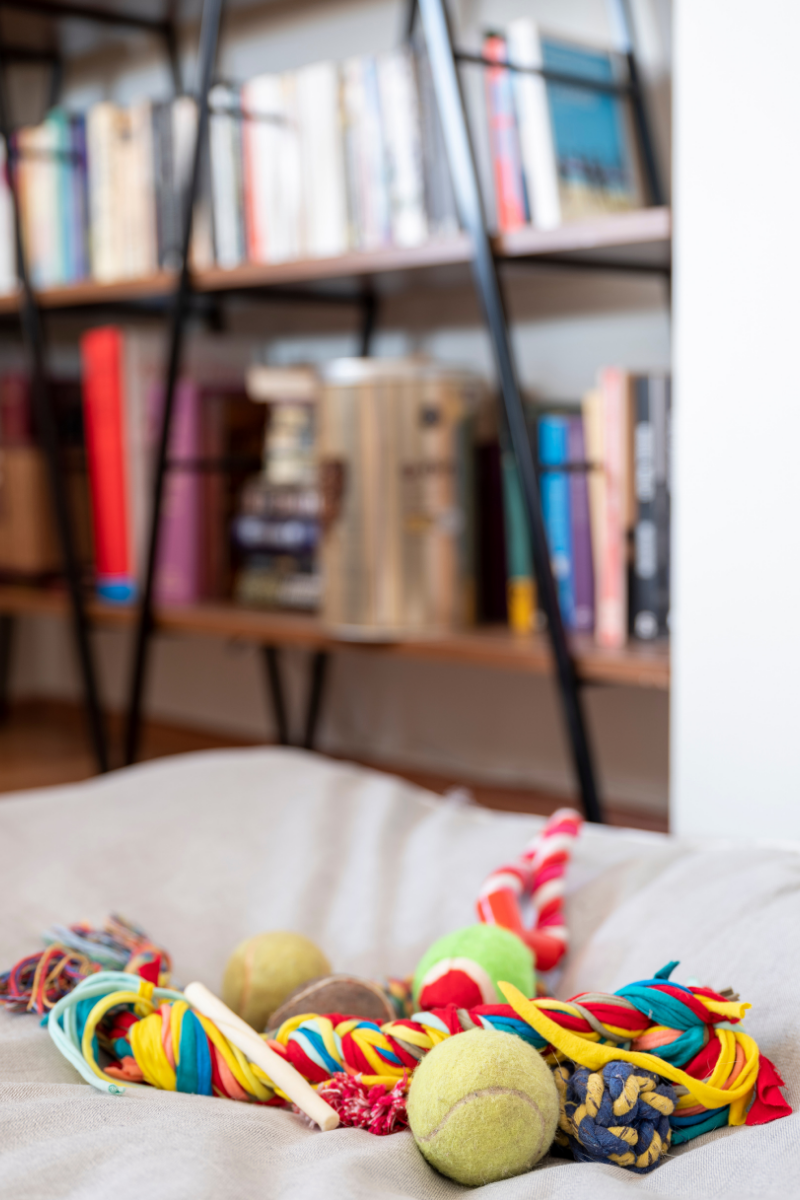

It’s not enough to have a couple of chew toys for your puppy. It’s definitely a situation where variety will serve you well. You never know what your pup may like.
Here are our favorite chew toys for puppies:
- chew toys with ropes
- nylabone bacon-flavored teethers for puppies
- starfish teether (doubles as a doggy toothbrush!)
- interlinked bone teethers
- nubbies dental chews
Teach Bite Inhibition
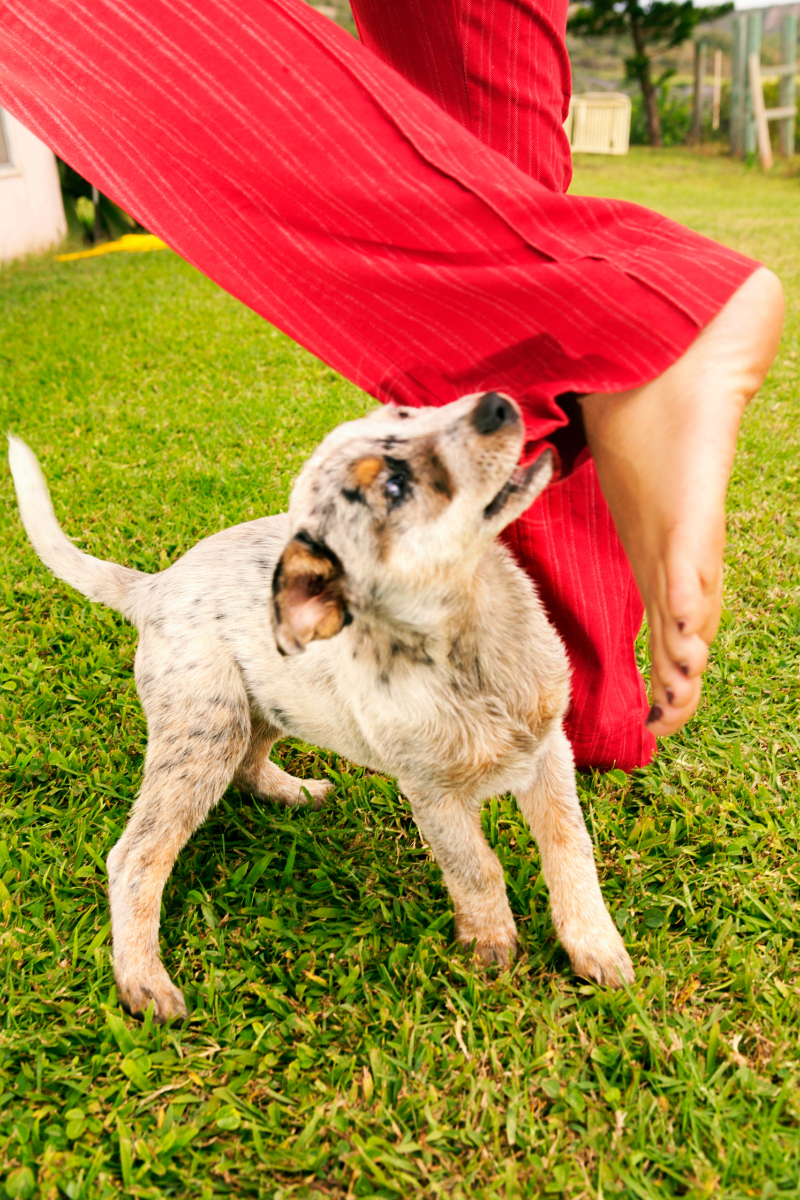

Puppies are social animals and learn from their siblings and mom.
When a puppy bites another dog a little too hard, they learn to control how hard they chomp down.
This is called “bite inhibition.”
This is especially important to teach your puppy when no other dogs are present, since they’re missing that interaction.
Allow your puppy to mouth at your hand, but let out a high-pitched “ow!” when they bite too hard.
They will likely stop and look at you. Repeat this process for 15 minutes at a time, or until you’ve had to “yelp” 3-5 times.
Any more than that, and you’re likely to lose your puppy’s focus.
Try Teething Treats
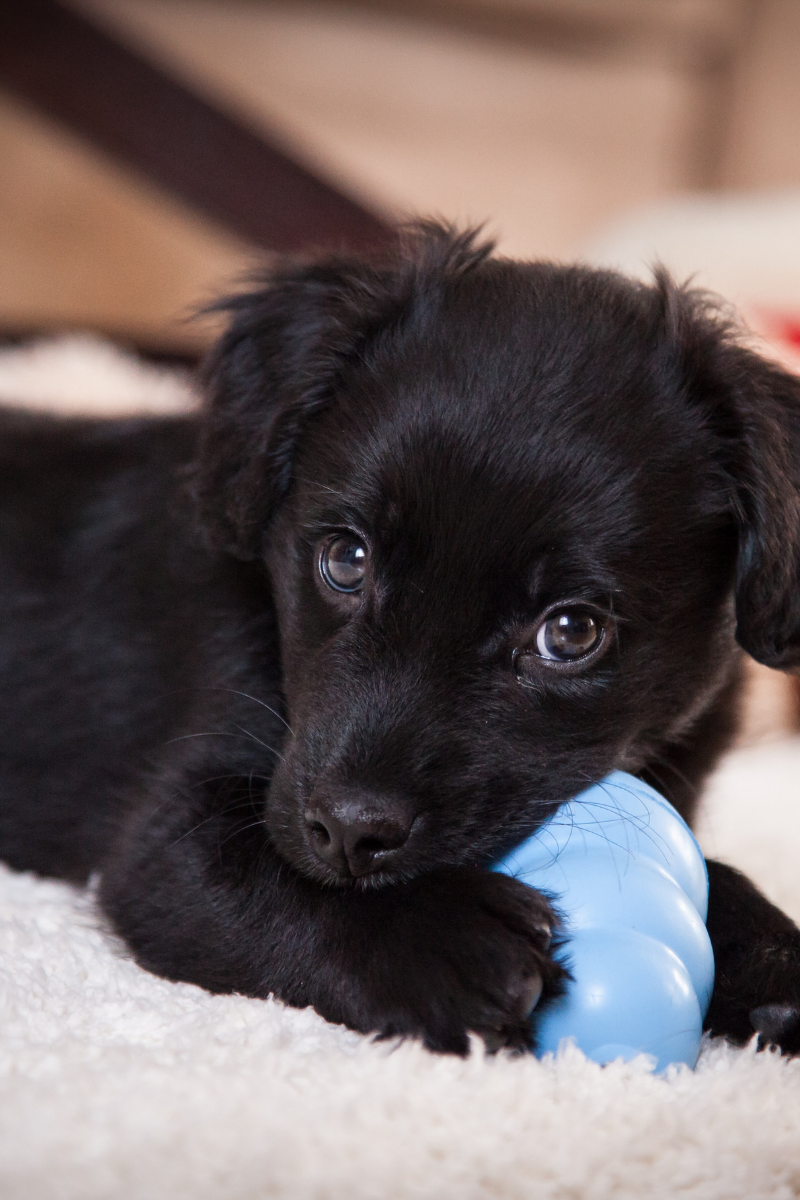

You can make your own puppy teething treats like these frozen pupsicles, or you can try some of our favorite teething treats below:
Try an Indoor Leash
According to McCann Dogs, you can try having a leash on your puppy, even while inside.
It may sound strange, but it’s actually quite effective.
The best leash to have on your puppy inside would be a simple, short one like this. Simply snip off the loop at the end so your puppy doesn’t get stuck on anything.
When you have a short leash on your puppy inside, it makes it easier to get a hold of your puppy when they do something naughty, instead of chasing them around the house.
This changes the dynamic of the relationship when you can quickly and easily handle the situation.
You can watch more information in this video below:
Add a Dash of Patience
When your puppy keeps biting your hands and feet, it can be difficult to remain calm and patient.
However, it’s only a matter of time before they’re on their best behavior!
Keep cycling through different techniques, and give it time.
Does your puppy bite and nip at you? Have you found anything not mentioned above that has helped? We’d love to hear! Let us know in the comments below.
From our Shop
-

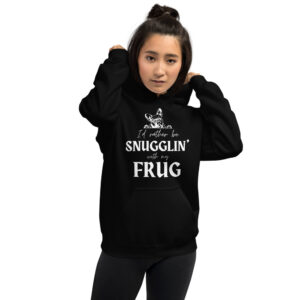 I’d Rather Be Snugglin’ With My Frug Hoodie – Unisex Fit$25.50 – $27.50
I’d Rather Be Snugglin’ With My Frug Hoodie – Unisex Fit$25.50 – $27.50 -

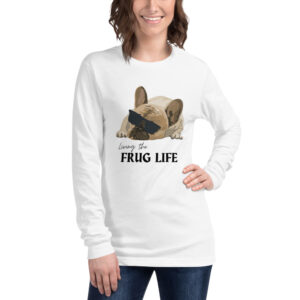 Living The Frug Life Long-Sleeve Tee$22.00 – $24.00
Living The Frug Life Long-Sleeve Tee$22.00 – $24.00 -

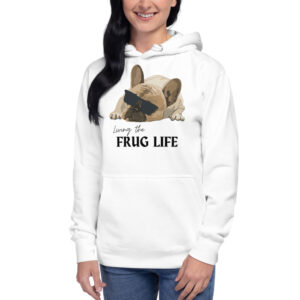 Living The Frug Life Hoodie – Unisex Fit$29.00 – $33.00
Living The Frug Life Hoodie – Unisex Fit$29.00 – $33.00
Use code READER to save 15% off your total order!
